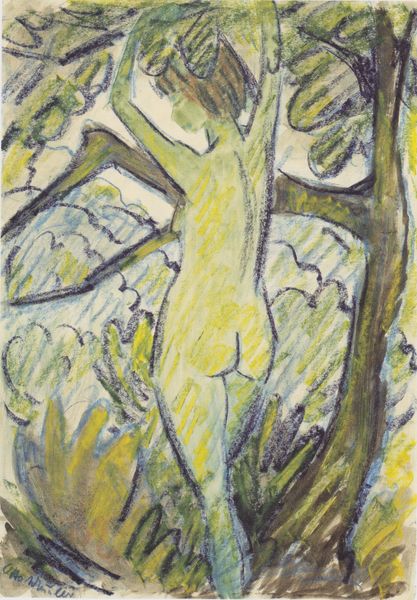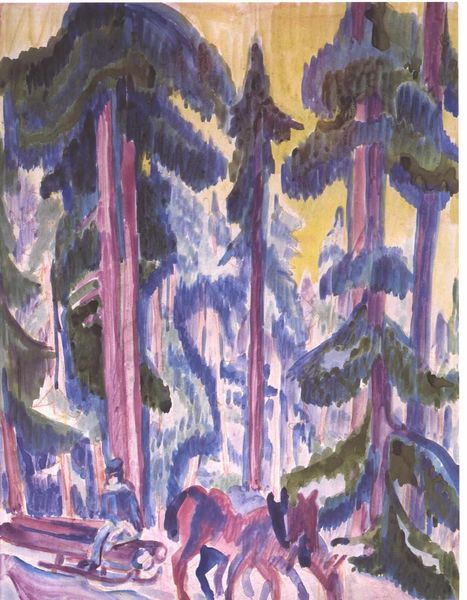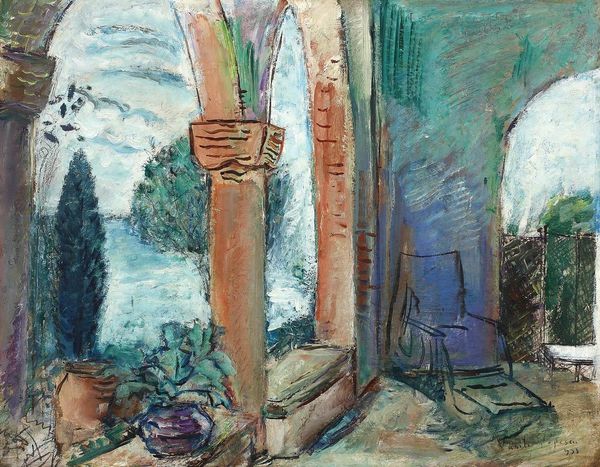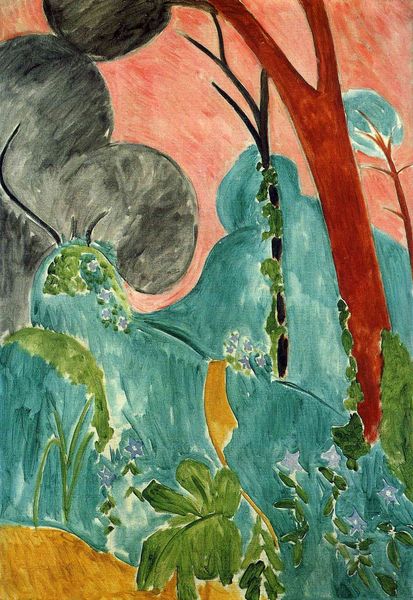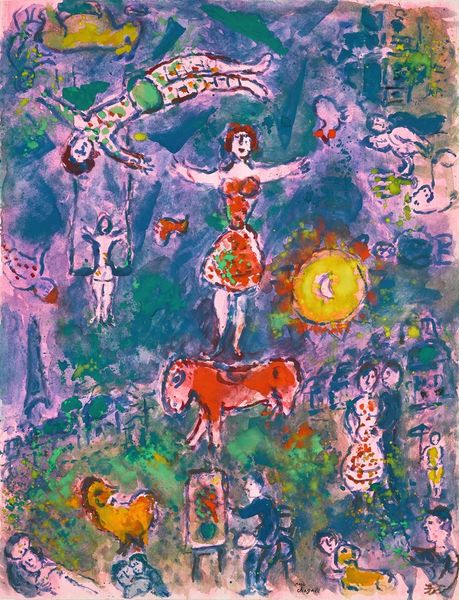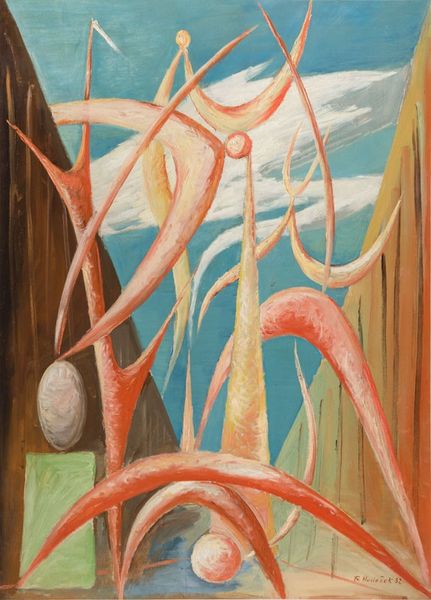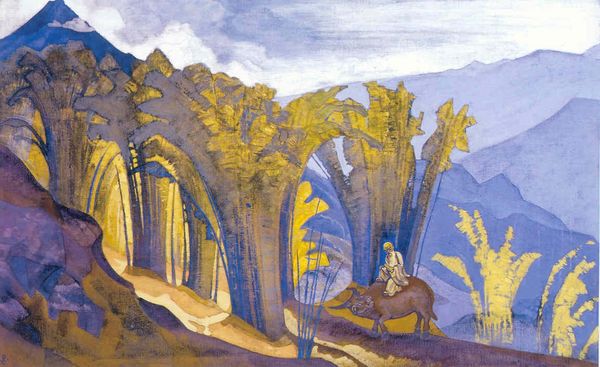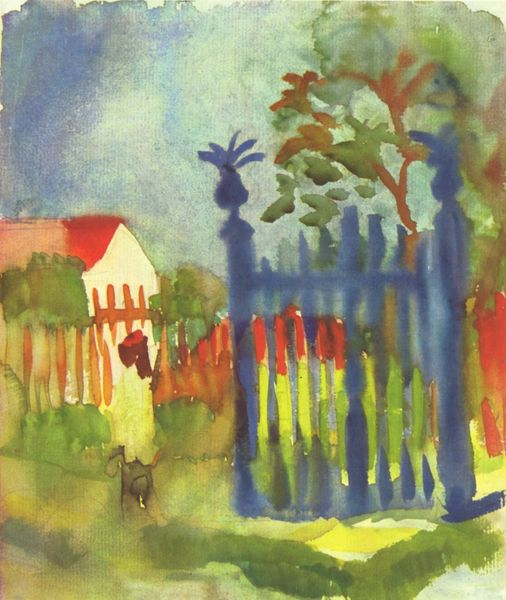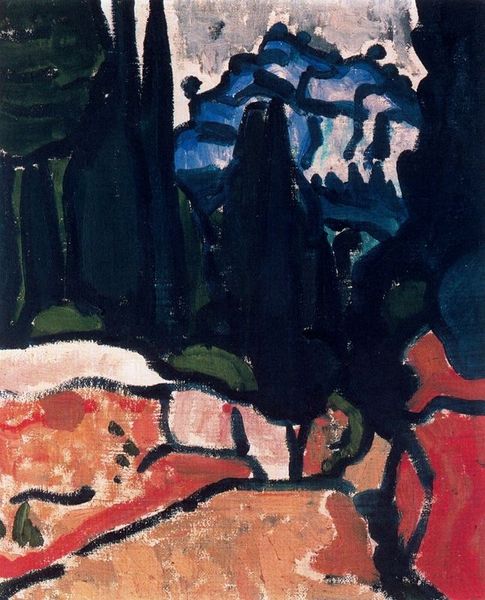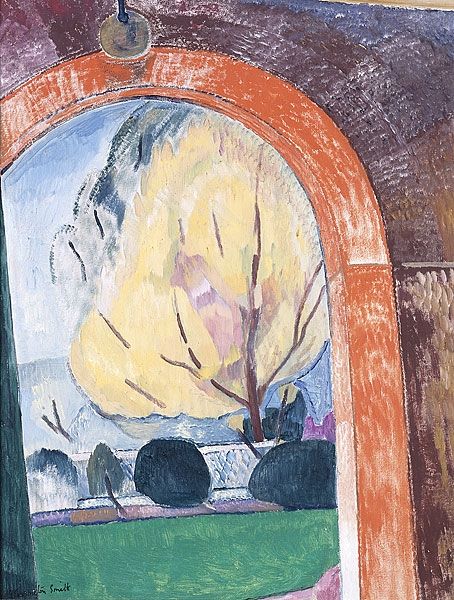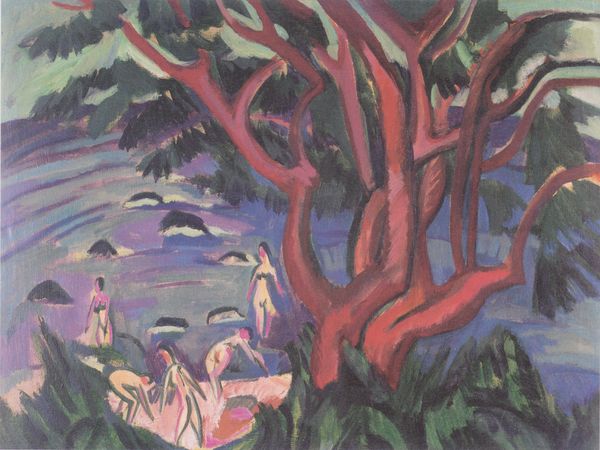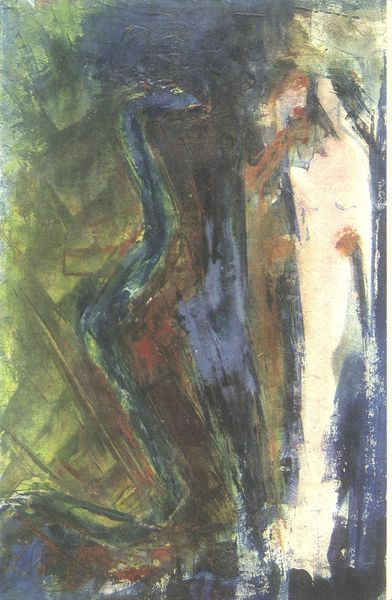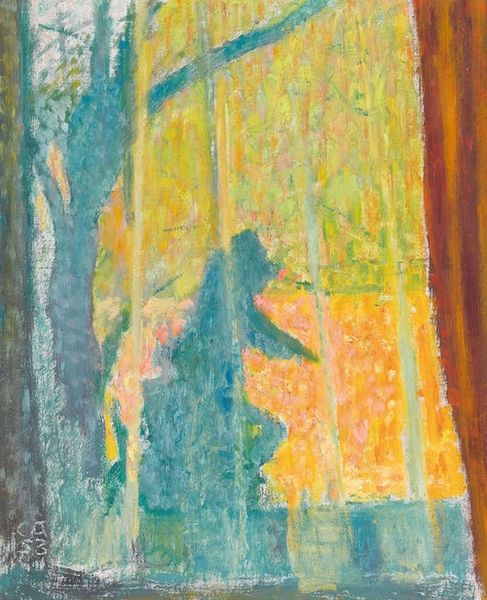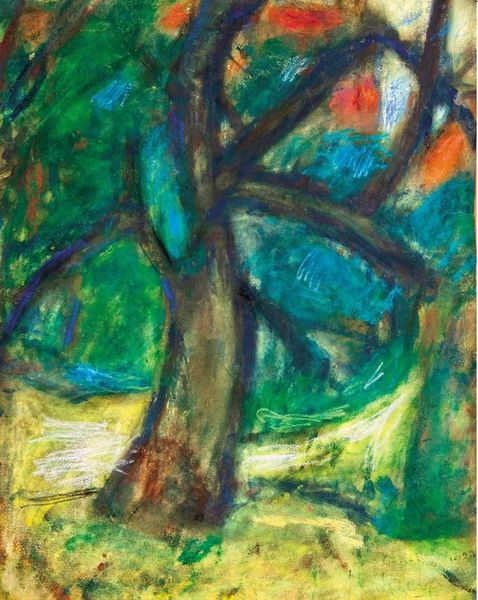
oil-paint
#
oil-paint
#
landscape
#
german-expressionism
#
figuration
#
form
#
oil painting
#
neo expressionist
#
expressionism
#
line
#
cityscape
#
expressionist
Dimensions: 120.5 x 91 cm
Copyright: Public domain
Editor: Ernst Ludwig Kirchner’s "The Rhine Bridge," painted in 1914, captures a bustling cityscape rendered in oil. It’s quite striking, almost claustrophobic, with those strong vertical lines boxing in the figures. How would you interpret this piece? Curator: Looking at it historically, this image is rife with pre-war anxiety. Kirchner, a key figure in German Expressionism, used his art to critique modern society. Consider how the bridge, meant to symbolize connection, here feels more like a cage. Editor: A cage? I hadn’t thought of it that way. Curator: Absolutely. The painting predates World War I, a time when Germany was undergoing rapid industrialization and social change. The bridge, instead of uniting, isolates these figures. They are alienated, dehumanized almost, amidst the imposing architecture. How do you think that feeling plays into its cultural significance? Editor: Well, I guess it’s a reflection of the unease and alienation many felt toward modernization, presented in such an architectural construct. It really isn't that connecting feeling I thought bridges embodied. The stark lines and constrained space mirror that feeling, maybe? Curator: Precisely. This is expressionism reflecting back societal conditions and unease. Also the style, like others of this time, can also reflect some aspects of socio-political movements of its moment in time. Editor: I see! I never quite understood how socio-political issues shaped Expressionism. Thanks. I now grasp that the art can give social cues as well as be aesthetic. Curator: Art provides a platform for dialogue to happen. That is why it's so important to our culture.
Comments
No comments
Be the first to comment and join the conversation on the ultimate creative platform.
